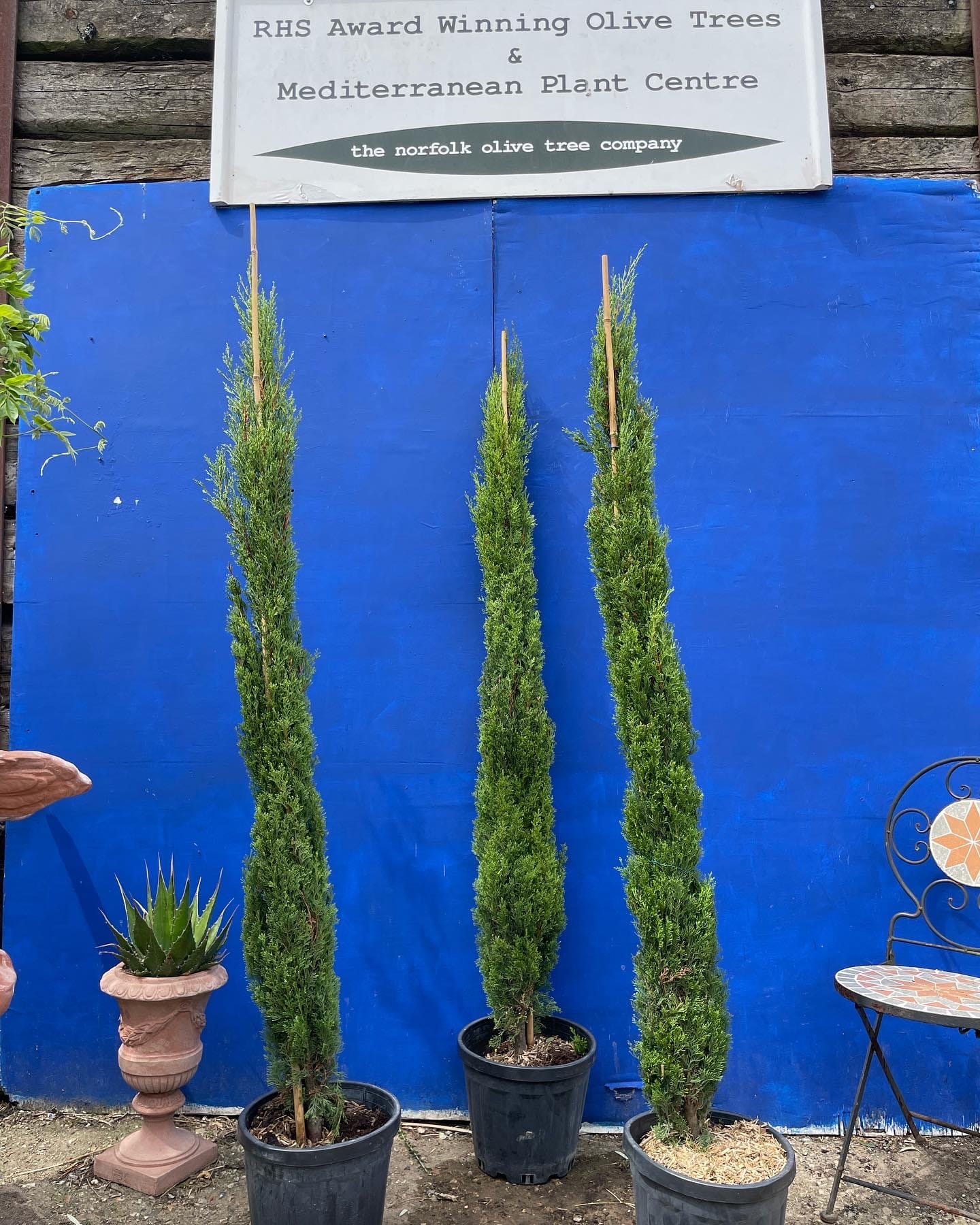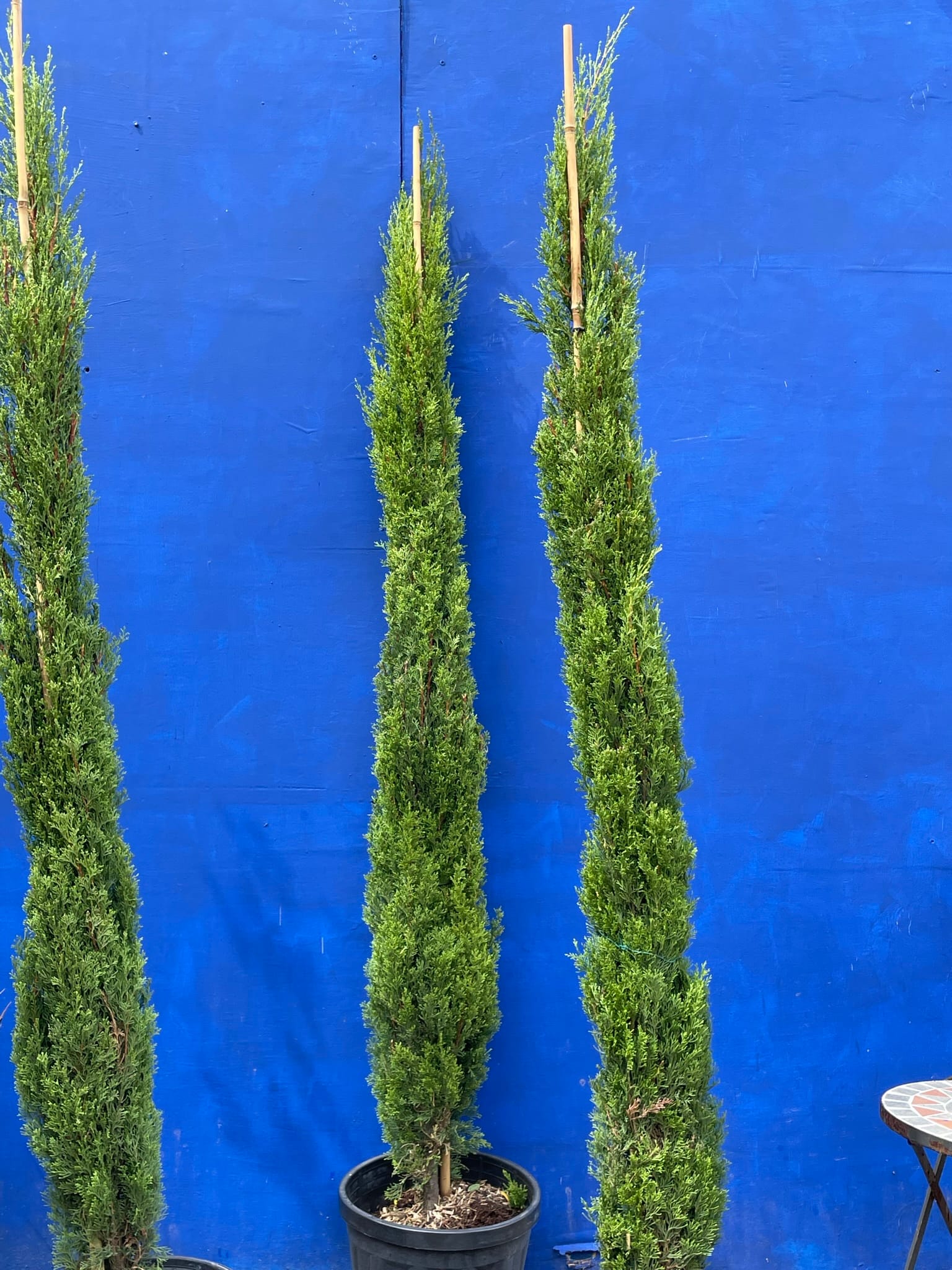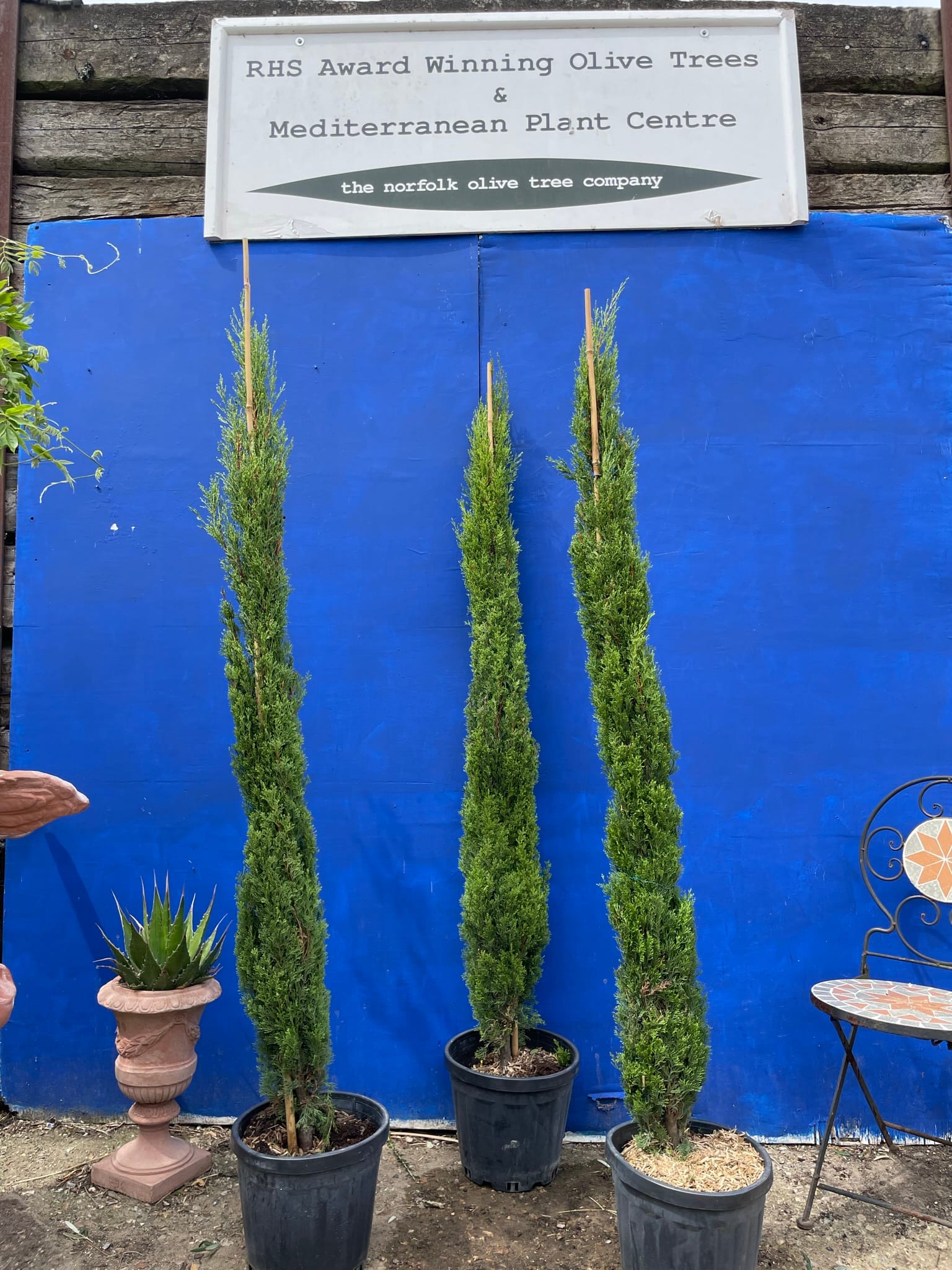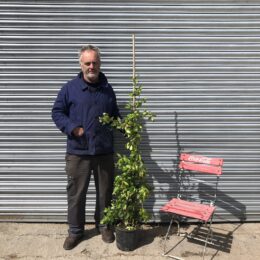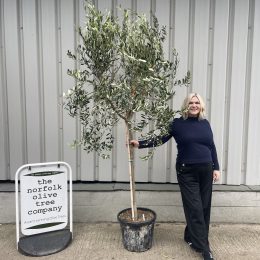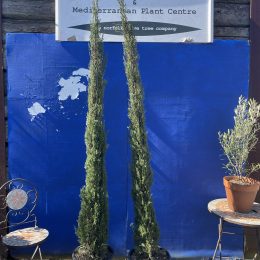Cupressus sempervirens or ‘Italian Cypress’ as they are also known.
1 metre 85cm
Pot 30cm by 30cm
. Grown in Tuscany.
Delivered to your door.
When you think of beautiful Italian gardens, one of the first things that come to mind is the iconic Cupressus. Why is three such an aesthetically pleasing number? It’s because three is the smallest number required to create a pattern. When planting Cupressus trees, planting in a odd number means you can arrange in a more natural cluster than in a block shape.
- SynonymsCupressus sempervirens ‘ Totem’
- FamilyCupressaceae
- GenusCupressus are vigorous, evergreen trees with flaking or scaly bark, often with columnar or narrowly ovoidcrowns, small, often aromatic, scale-like leaves and small, spherical female cones
- DetailsStricta Group are narrowly columnar, evergreen conifers with dense, dark green foliage in short sprays on erect branches
About Cupressus sempervirens
These wonderful trees make an impressive architectural statement, especially when planted in pairs or rows. These narrow, columnar evergreen trees are a great way to provide colour all year-round. They can also help with privacy in a garden by adding height and substance. One of the best things about these trees is their ability to squeeze into small spaces, making them incredibly versatile. In terms of height, this evergreen tree grows at a moderate pace to about 30 to 40 feet tall. It rarely gets more than 3 or 4 feet wide.
Key facts to know
Cupressus sempervirens must have well-drained soil and they benefit the most from being in full to part sun. They are drought tolerant once established, however, they will need plenty of water until then. One of the best ways to avoid issues with fungus is ensuring good air circulation around the tree. Also, choosing a well-drained spot for planting, and spot watering so that the water doesn’t hit the foliage. In terms of pruning, these trees can be pruned however they do have a natural shape that will remain even without regular trimming. So, not only are they elegant to look at, but they’re also low on the maintenance scale. When it comes to feeding, Cupressus sempervirens like fertiliser in the change of seasons, so around 3-4 times a year.


